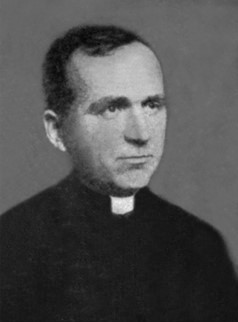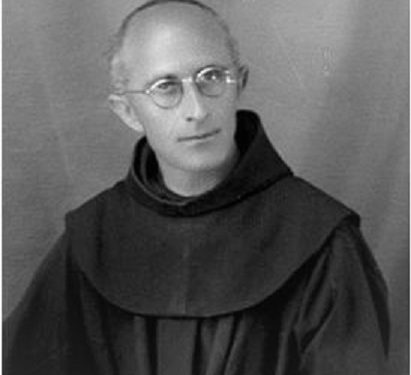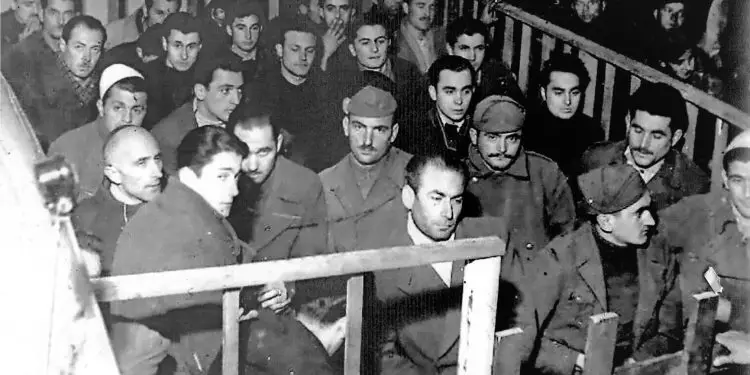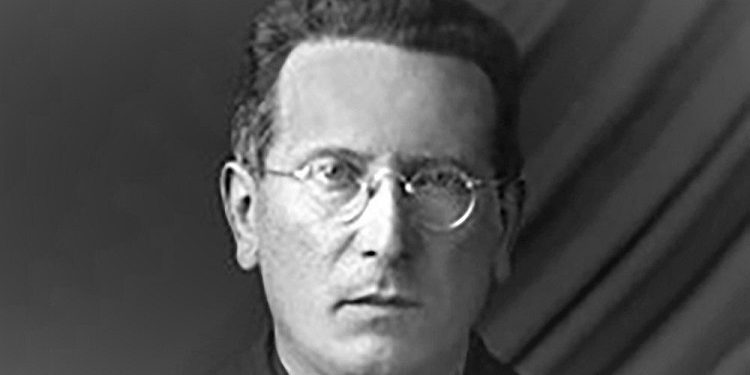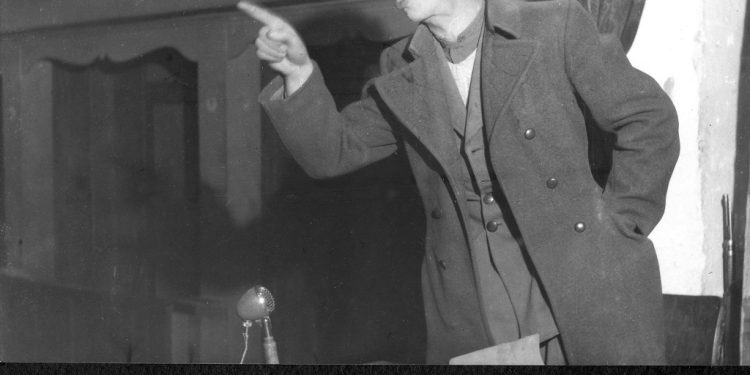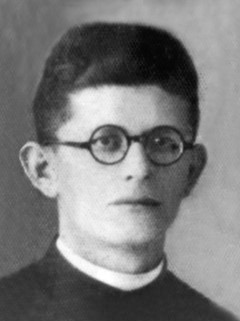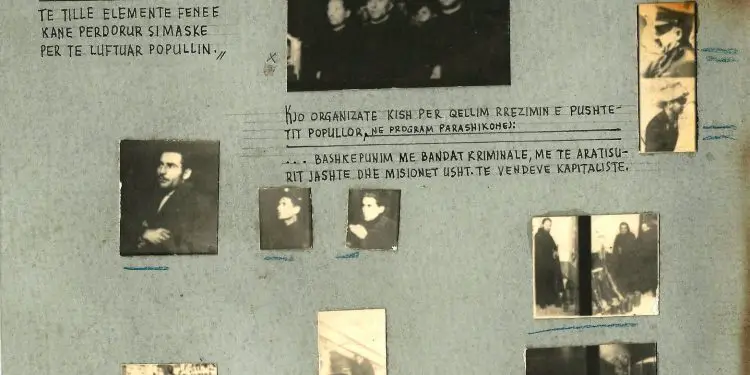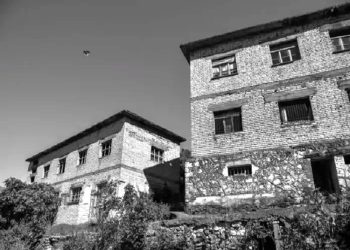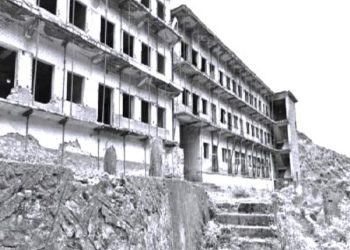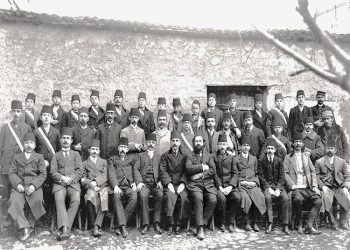By Gjovalin Zezaj
The first part
Memorie.al / Gjovalin Zezaj were born in the city of Shkodra in 1928. He was the first student of the “At Gjergj Fishta” gymnasium in the city of Shkodra, who was arrested by the State Security on November 27, 1945, after together with some other students, founded the anti-communist organization “Albanian Union”. After being held for some time in the interrogator in one of the improvised prisons of the city of Shkodra, he went to trial before a military college; where with him were also a large group of 39 defendants, including three clergymen. In his claim, prosecutor Aranit Çela requested the death penalty, by firing squad, for 11 of these defendants, while for Gjovalini, although he was still a teenager, he requested life imprisonment. Taking advantage of the amnesty due to age, Gjovalini served only 6 years in prison and after being released from prison, he was sent to work in very difficult jobs. But after 7 years, on May 25, 1959, the day when the head of the Soviet Union, Nikita Khrushchev, accompanied by Enver Hoxha and other senior leaders of PPSh, was visiting the city of Shkodra, Gjovali was arrested for the second time from the State Security. After being detained for some time in the investigator’s cell, he appeared in court and was sentenced to 5 years in political prison, accused of agitation and propaganda against the people’s power. After he was released from prison when he served the entire sentence given by the court, he continues his high school at night school (without breaking from work) and takes his matura. Gjovalin Zezaj worked hard jobs until he retired and after the 90s, with the collapse of the communist regime of Enver Hoxha and his successor, Ramiz Alia, he became active with the Association of Former Persecuted and Political Prisoners of Albania, for the Shkodra branch, until he passed away in 2020, at the age of 92. He also published the book: “Medieval Genocide in the 20th Century”, part of which we have selected for publication in this article.
Excerpt from the book “MEDIAEVAL GENOCIDE IN THE 20TH CENTURY”
The first sentence
By now we were used to that usual noise, like a nursery rhyme. I had fallen into a deep sleep, but even then I had no luck. A policeman came furiously. He woke me up and sent me to the Branch Chief, who asked me if I knew Mark Chun. To tell the truth I was deeply shaken, but I restrained myself by appearing calm, and said to him:
– I knew Mark through my father, who had him as a student in Rrenxa-Bushat village. Through our two families, a sincere friendship was born, – but before finishing the speech, the head of the Branch said to me:
– “These are fairy tales, talk about your hostile activity against the people’s power raised with the blood of martyrs, who gave their lives for freedom…, and which you wanted to overthrow”, – then he spoke like a madman about the great Stalin, from nervousness the sweats were pouring down his face. To feel somewhat liberated, he unbuttoned the jacket that seemed to be taking his breath away. He called the police, which I later found out why.
After a while, the police forcefully entered with Mark Çuni in handcuffs. I was confused! I realized that he had been arrested. How was the work! Now it was useless!
I had Mark and the chief executioner in front of me. They were unimaginable moments. Mark was tied with his hands behind his back, and the Branch Chief’s whip was constantly falling on his body, on his face and everywhere, while blood was constantly flowing from his nose and mouth. Really creepy and painful scene. It is unbelievable how man manages to behave so animalistic ally with man.
This is the bitter truth. That was not enough; he slammed him into one of the corners of the wall and punched him in the stomach with as much force as he had. Finally Mark fell unconscious and when the policeman dragged him up the stairs, his head hit every step.
…The investigators, in order to vent their anger because I did not confess to them about the “sins I committed”, took me down from the bathroom on the third floor, which was, at least, ventilated, on the ground floor, under the stairs. In fact, it was a primitive bathhouse, but it also served as a place of punishment and torture to force the prisoners to tell the truth and untruths.
In addition to the stench and unbearable smell, there was no window either, but it was ventilated only when the door was opened by a prisoner who performed his personal needs, escorted by a policeman or a soldier in partisan clothing. Fortunately, I stayed here with my heart between my teeth for only three days, and then I was sent up again. There I found Mark Çuni, who was walking without a bed or cover, in a daze, God forbid. On the one hand torture, on the other hand with a broken arm and without any medical help.
I tried with the few circumstantial means to help them. I tied his broken arm with a towel that I split in half, while the wounds were many, and where I could, I cooled him with water. This was the only service I could do. It wasn’t long after I was settled here, when Fadil Rakiqi, a friend of the prisoners, arrived, who told me: “They arrested an Italian priest and put him in the dungeon where you were.” That’s it, it’s gone.
I understood why they had taken me out of that place. I was very curious to know who the last arrestee was. I waited the next day when Fadili, who accompanied us to the bathroom, took over the service of the prisoners on the ground floor. When it was my turn, I said to our friend: “Be careful, I want to talk to the priest for a few moments.” I went into the bathroom, while Fadili watched over the stairs.
I saw the man whom I did not recognize gathered up (because he was under the stairs). I told him that I am an arrested student and told him my name. He answered me in his sweet voice: “I am Father Giovanni Fausti”, a name I heard for the first time. I understood that it was a personality of the Catholic Clergy and I left him, greeting him with respect and pain…!
…At the end of January 1946, I was taken to an office on the second floor of the Brigade Headquarters, where they gathered all of us who had completed the investigative process. As soon as the door opened, standing in front of me was the “wolf” with a human face, the prosecutor, Captain Aranit Çela, who was famous for his cruelty in Shkodër.
He had a hypocritical conversation with me, presenting himself as a humane person and, among other things, told me: “We are sorry that you are falling victim to others. You, – he said, – are in the flower of youth, enjoy it if you want, decide and get release from prison or death. Always – he continued, – the people’s trial opens tomorrow and tell the jury that your leaders were Father Giovani Fausti, Father Danjel Dajani and Father Gjon Shllaku.
When I heard these words from the mouth of the provocateur prosecutor, I was extremely indignant, but being cool-headed and prudent, I answered: “I heard these names for the first time here at the investigator; I was also a student of the State Gymnasium “. My negative answer did not suit the prosecutor, who told me: “If you don’t accept, your head will go”.
On January 31, 1946, early in the morning, the police entered each room and, silently, handcuffed us two by two and took us out into the ground floor corridor of the building. There were people I had never met who I saw here for the first time. In fact, I did not know how many were implicated in this matter, and they were not few, although we have tried with all our might to preserve the conspiracy to some extent and to save some heads. In fact, we reached the goal to some extent.
Every day the people of Shkodra waited for us on both sides of the road, terrorized by seeing those painful and ugly scenes, on the backs of innocent patriots and clerics. At the head of this commemorative procession were Father Giovani Fausti, Father Danjel Dajani and Father Gjon Shllaku, then seminarians, students, soldiers and villagers accused of being collaborators with our group, numbering 39 defendants surrounded by a multitude of policemen, partisans and of Security officers armed to the teeth.
Now it was the hall of the “Judgment of the people” located in the “Rozafat” Cinema, recently adapted by the communists. The audience was made up of trusted party people with special authorization, and rarely could our people enter the hall, while powerful loudspeakers connected to Radio Shkodra broadcast the proceedings of the daily sessions of the so-called “People’s Court”.
While we were approaching the building of Cinema “Rozafat”, the loudspeakers broadcast revolutionary partisan songs of the time such as: “Hakmarrje rini”, etc., in the middle of the musical interval, the announcer, Masar Bekteshi, screamed with his deafening voice, saying: “Watch out! Notice! Today opens the first session of the People’s Court, against a criminal group of the fascist-terrorist organization led by the leaders of the Catholic Clergy of Shkodra”.
Amidst the hysterical applause and cheers of the communist participants, the Prosecutor, Captain Aranit Çela, appeared on the court stand, boasting and boasting like a capadai.
The jury consisted of its chairman, Lieutenant Mustafa Iliazi, members: Captain Namik Qemali, Aspirant Tonin Miloti and Shaban Dautaj, secretary. The first session of the trial focused only on the many questions that were asked to Father Faust, who answered them with manliness, coolness and unwavering determination on the path of martyrdom.
The second session would be opened by Father Danjel Dajani, who would answer the false accusations prepared in the kitchen of the criminal police investigation, headed by Zoi Themelin.
…The prosecutor, after finishing the pretense of the criminal and sadist, with those two eyes that flashed from side to side, like those of a viper and with that mouth of poison and bile, took a deep breath, the “poor” was tired of reading everything those names among which eleven people by death.
And at this moment, all the participants stood up, as they used to, cheering and clapping for the “son of the people”, skilled in his profession, who was proudly challenging innocent men and youth like a rooster in the manure. . While the opposite for our people. Somewhere, at one end of the lonely hall, I saw my brother and two sisters, sadness expressed on their faces.
…On the left side of the entrance stood the building of the large, quadrangular, two-story prison, on the facade of the large courtyard, the prison administration department and the police forces were located. Inside this quadrangular building, there was a yard of about 200 m2 and, in the middle of this inner yard, a cistern was placed, which served to supply the prisoners with water.
The building had four large rooms, laid with a floor of rotten planks, each room accommodating about 80 people, but more, arranged in four rows, where, sometimes, the sleeping space was no more than 30 cm. On the second floor, in addition to two large rooms, there were also 4 small rooms (two on the left and two on the right of the building). These were used for the sick, almost like nurse’s rooms, without any medical services.
On the ground floor, in front of the barred entrance door, was the very primitive bathroom, open, without partitions. On both sides of the courtyard, under the stairs, there were two dungeons, which served to punish “disobedient” prisoners or, for those sentenced to death, bound hand and foot, waiting, perhaps, for several months of execution or rarely, of forgiveness from the Presidium of the People’s Assembly.
Since I had been sentenced to 30 years in prison, I had earned the right to stay in ground floor room no. 7, in the room of those who had been severely punished. So this was the condemned room, right after the lifers. They received me cordially, leaving me in charge of the place and, as usual, offered me a box of tobacco, telling me that the prison is for men.
There I found the young highlanders who had been in a group with Preng Cal, who, they said, had surrendered alone to save us younger ones from certain death. That day the visits did not end, sometimes one group called me, sometimes another. In that room were also the brothers Zenel and Hamit Kazazi who, in an effort with the many forces of the Security, were injured and then sentenced to heavy prison.
…The situation in our country was getting worse and worse. Clerics and intellectuals were targeted. Religious worship was officially permitted but, de facto, outlawed. In 1946, Father Karlo Serreqi was arrested, under the absurd accusation that he had not denounced the confession made to him by a fugitive, who was seriously injured, and who soon died. Then, Father Karlo Serreqi, was sentenced by the court by firing squad, which was later returned to him with life imprisonment. At this time, an elderly cleric, Hafiz Derguti, an honest, brave and patriotic man, was also arrested.
At one end of the large courtyard, adjacent to the prison building, was a basement room. There were women politically imprisoned, including 18-year-old Ana Daja, who fought with the servile and communist inmates, who suddenly ambushed her while she was going to school, to forcibly take her “Action” badge Catholic”, which he carried on his chest. They fought in the middle of the road, grabbed him by the hair, knocked him to the ground, but despite all their efforts, the action failed shamefully.
The badge remained as it remained on her chest. But, alas, persecution followed him at every moment. Arrested for “hostile activities against the popular government” and sentenced to four years in prison. Vitoren Kuka, Agime Pipa, sisters Terezina and Liza Pali and many other girls convicted as anti-communists were there.
On the second floor, at both ends of the building, were room’s No. 3 and No. 10. These were reserved for the sick who had infectious diseases and who were in the galloping process of T.B.C. (Turbecolosis). Agim Boksi, Filip Logoreci, Lekë Harapi, Luigj Kçira, Pjetër Gjoka etc. were laid there. The state did not give them any medical aid, but the families, although not in a good economic condition, were forced to pay for medicine and food for their sick.
In January 1945, the “Revolt of the Great Highlands” broke out, led by the Bajraktar of Kelmendi, Preng Cal. A few months later, the ‘Koplik Revolt’, led by Llesh Marash, who would later be beaten alive and executed by hanging…!
…Many police and military forces were sent and after several hours of fighting, the largest anti-communist uprising was extinguished. The province of Postriba paid for this revolt very dearly. The Red Inquisition shot 15 people, including some from the city of Shkodra, and many others were sentenced to heavy prison terms.
The end of the Second World War found Shkodra and all of Albania in a fairly good economic condition, but the State Treasury had been emptied by the occupier. This weighed heavily on wealthy merchants. The state imposed an extraordinary tax on profits during the war.
…When newly convicted prisoners came, they told us new news about the situation in the inquest, they told us how people passed the level of reasoning and to escape torture at all costs, they asked for quick death.
From the end of 1946, the devout communist announcer, Masar Bekteshi, announced from the loudspeaker of Radio Shkodra that, in the control carried out by the People’s Defense Forces in the Franciscan Church of Shkodra, they found several crates of weapons and ammunition hidden. We political prisoners, who were listening attentively to this ominous news, not only did not believe it, but revolted at this foxy deception prepared in the kitchen of the State Security.
But the truth would come out later. The scenario was prepared by the leadership in Tirana.
In the courtyard of the Franciscan high school, some bastards of the State Security, related to the seminary student Ndoc Vasili and the assistant cook, entered.
Within a day, the trial began and ended, from which they were sentenced to death and executed:
- Monsignor Frano Gjini, 62 years old.
- Monsignor Nikola Deda, 58 years old.
- Father Mati Prendushi, 66 years old.
- Ciprian Nika, 46 years old.
- Father Pal Dodaj, 67 years old.
While Father Donat Kurti, the former director of the Franciscan High School “Illyricum”, he is also sentenced to death, but his sentence is returned to life imprisonment. Memorie.al
The next issue follows





